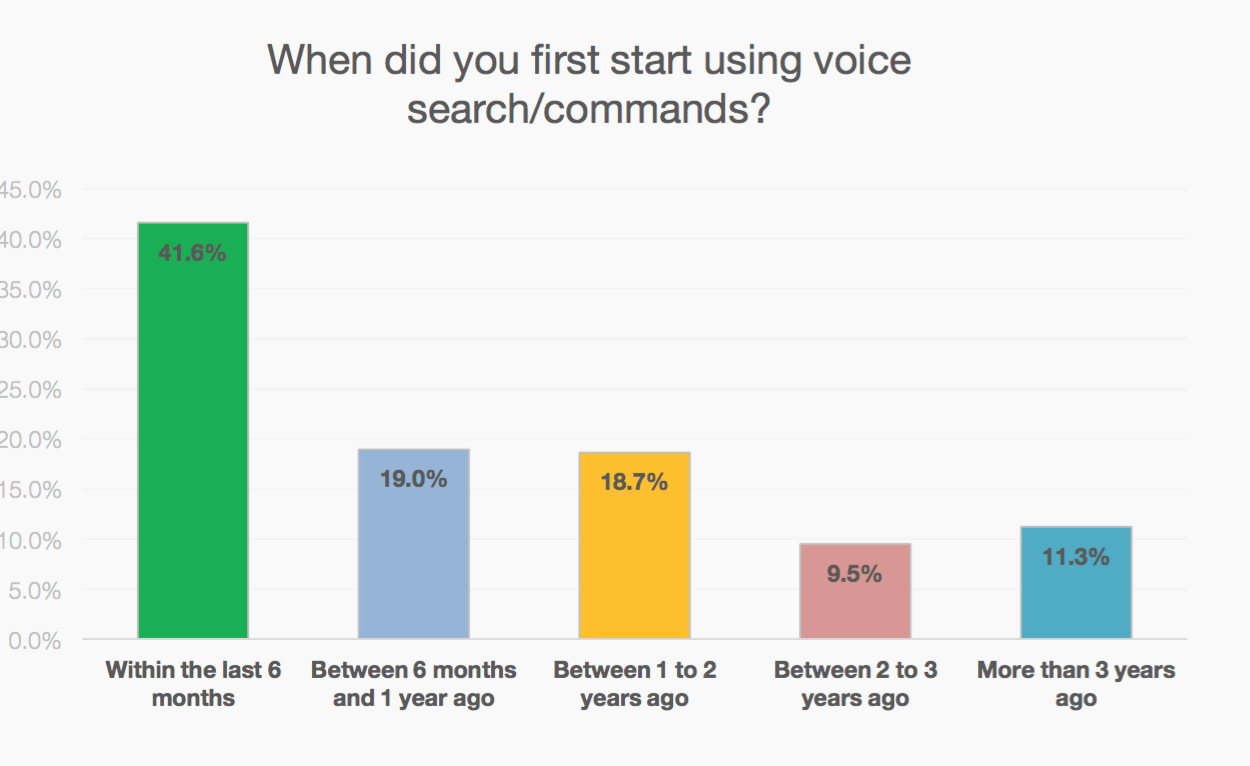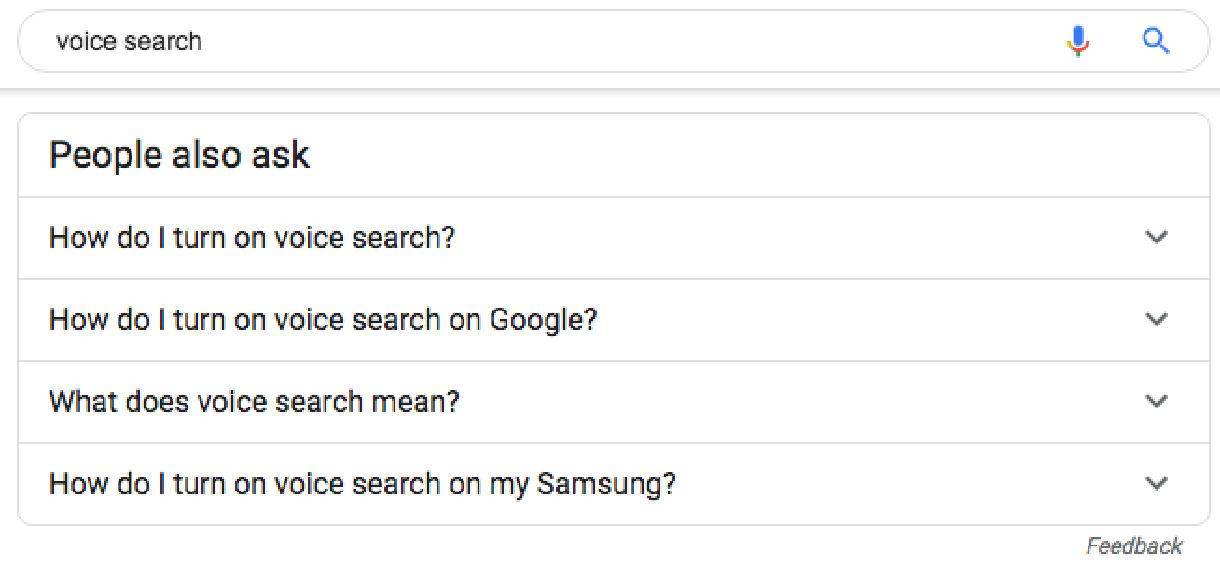

The Impact of Voice Search on Digital Marketing
One of the biggest developments impacting the world of digital marketing today is the widespread adoption of voice search technology, which is changing how search marketing professionals optimize websites to rank for targeted keywords and queries.
Statistics Show the Growth of Voice
When reviewing the latest voice search trends and statistics over the past several years, we can see the popularity and usage of smartphone assistants and smart speakers—such as Apple's Siri, Amazon's Alexa, and Google Home—has skyrocketed.
The rapidly rising adoption rate of digital voice assistants across the world has obviously made a significant impact on search trends and SEO. Just a couple years ago, voice search accounted for an incredibly small fraction of total searches worldwide. Today, we’re seeing more than 20 percent of all mobile searches being done by voice, with many predicting that half of all searches will be performed using voice search by 2020. [featured-blog id="1"][/featured-blog]
Digital Strategies for Voice Search
So what does this mean for your website's ability to draw organic traffic from search? As consumers change how they search for information, products, and services, how are current websites built to handle these new user behaviors? Let's break down some key strategies you should leverage to capitalize on emerging voice search trends and adapt your digital strategy moving forward:

Statistics show a rapid increase in user adoption of Voice Search. [Source: WordStream]
1. “Page 1” Is Not Enough Anymore
Marketers have spent about twenty years figuring out how to optimize websites to improve their position rankings on search engine results pages (SERPs). Today, those SERPs look a lot different–and some aren't even "pages" at all.
Traditionally, this optimization focused on crafting copy that would compel a user to click the search result, while also leveraging the appropriate keywords to match targeted search queries. Appearing anywhere on page one of the SERPs was considered a win because users had grown accustomed to at least scrolling and glancing beyond the top search result. Voice search is changing that.
Users are no longer being presented ten different options to review before choosing the best answer to their query. In fact, they’re rarely even presented two options–more often than not, the first result they hear either satisfies their query, or they decide to change their initial search. This means being number two or three in the rankings isn’t good enough anymore. A lot of this has to do with the specific nature of voice search and the challenge it presents to sites optimized for typed searches.
2. Rethink and Adapt Your Content
Because voice search has made reaching many audiences significantly harder, understanding exactly what users are searching for and how they are searching for it is key to creating content that successfully attracts organic voice search traffic to your website. To optimize your site for voice searches, we must now consider the difference between a search that is typed and a search that is spoken, as well as accounting for deeper search context and intent.

Questions that are spoken will return different search results than typed keywords.
When speaking, we tend to use more words and longer sentences than when we type on keyboards or our phones. So while most typed searches consist of sentence fragments, "screenless" searches generally occur in the form of "long-tail" questions. It's the difference between simply typing "weather in Louisville KY" into Google versus asking Siri "What will the weather be like in Louisville, KY, on Saturday?"
This is why your content should incorporate more natural language patterns if you want to grab spoken queries. Instead of focusing your web content on shorter keywords or phrases, optimize more pages to incorporate these "long-tail" searches. Consider adding full sentences as targeted keywords in your search strategy, and add phrasing in your headers to match the typical keyword sequence of these queries.
Along these same lines, your content should answer as many related spoken, question-based searches as possible. Need ideas for related questions? Easy: Just submit one of your keyword searches to Google and look in the "People Also Ask" table that appears for it.

3. Voice Technology and Local Search
The rapidly increasing adoption of voice search follows the rise of what's known as the "screenless internet" and the development of "screenless apps." You should expect to hear more about these trends as more businesses focus on improving their digital experience for those using assistants and smart speakers. Screenless apps will be particularly beneficial for businesses with a physical location due to the fact that voice searches are significantly more likely to be local-based than text searches.
How to Capitalize on Voice Search
Voice search optimization presents a rare opportunity for businesses looking to get ahead of the game. If you think your organization's digital marketing efforts might benefit from an enhanced voice search strategy, there’s still time to beat your competitors to the punch. Speak to a digital agency now, because the continued growth of voice search presents new market growth opportunities for digital moving forward.




